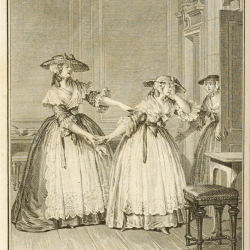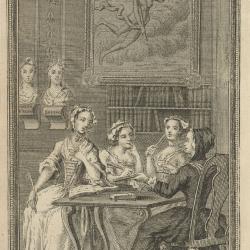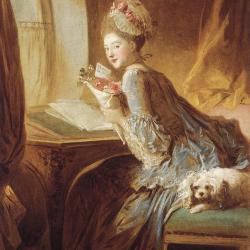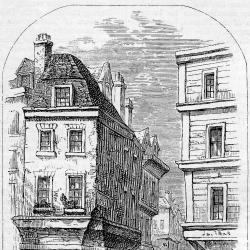![Jonathan Swift, ‘Frontispiece to the fifth edition of The Battle of the Books’, 1710 [1704], WikiCommons, https://en.wikipedia.org/wiki/The_Battle_of_the_Books#/media/File:Battle_of_the_Books_(woodcut).jpg Battle Books](/sites/default/files/styles/notice_teaser/public/notices/Battle_of_the_Books_%28woodcut%29.jpeg?h=11be8ff1&itok=ivfZhmCR)
English Novel
SAVA Adnana
This entry demonstrates how some of the very first novelists contributed, individually and collectively, whether consciously or inadvertently, to the rise of the new literary form while being driven by a spirit of opposition, contradiction and emulation seemingly hardly suited to foster the cooperative and collaborative environment which the development of a common literary project requires.

English theatre in Enlightenment France
SCHANG Marie-Cécile
French playwrights of the second half of the eighteenth century found inspiration in the themes, characters, and scenarios they borrowed from British theatre, and more largely from British sensibility. The advent of drama and dramatic comedy testifies to the importance of pathos and spectacle during this time. This type of theatre encouraged spectators to identify with the characters and their passions. Sociability thus operated on two levels—on stage, and in the audience. It also fuelled the debate on Franco-British relations.

Essay periodical
BOULARD-JOUSLIN Claire
The rise of the leisure press after 1690 caused the appearance of new forms of middle-class sociability. The tea-table is a case in point, around which the two sexes gathered, read periodical essays together, which provided subject matter to polite conversation.

French epistolary novel
D'ASCENZO Federica
Profitant du phénomène éditorial que sont les secrétaires, liée aussi bien à la société de la conversation, dont la lettre est un prolongement et un succédané, qu’à la vogue des correspondances célèbres qui consacrent la lettre comme ‘petit genre’, la littérature épistolaire foisonne au XVIIIe siècle. Le roman par lettres, expression directe de la sociabilité de l’époque et d’une société dont il est le miroir, porte en lui l’esprit et l’évolution d’un siècle protéiforme qui construit les bases de la modernité à venir.

Grub Street
DOMSCH Sebastian
Grub Street was originally a real place, an existing street in London in the Cripplegate area, that derived its name from the refuse ditch (grub) that ran alongside. It had a high concentration of taverns, dosshouses, coffeehouses, and brothels – as well as publishers, booksellers, and authors.